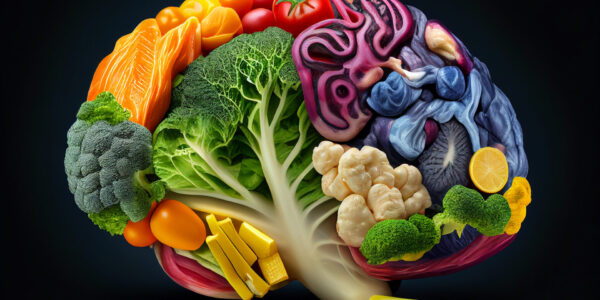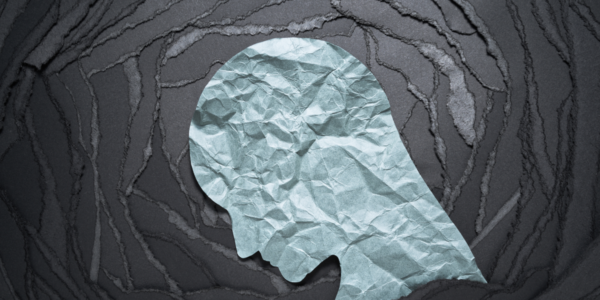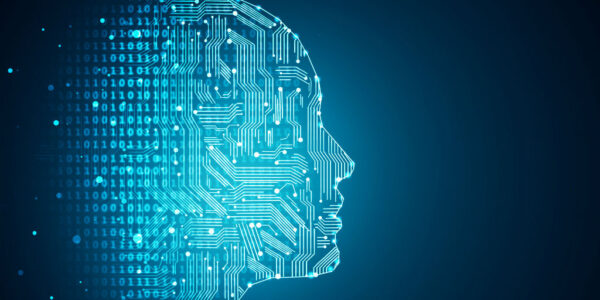Welcome to Psyched for Mental Health, the official mental health podcast of WebShrink.
Climate anxiety–also sometimes called eco anxiety–is itself not a disorder or a mental health condition. Fear and worry are a normal response to something that is a real threat. But climate anxiety can certainly impact our mental health.
We sat down with Kate Olson, a writer, climate sociologist, and a community organizer. Olson is helping people find ways within their communities to make small, but impactful contributions to help the broader issue of climate change.
Episode Transcript:
The following is not intended to provide direct medical, psychiatric, or substance use treatment advice, and is not a substitute for evaluation and treatment by a healthcare professional.
Dr. Ed Bilotti:
Hello, I’m Dr. Ed Bilotti and this is Psyched for Mental Health, empowering you with trustworthy information about modern psychiatry. This podcast is a companion to webshrink.com, the platform for seekers and providers of mental healthcare.
These days, it seems it’s almost impossible to get through a day without some reminder of climate change. Maybe you’re seeing headlines about another record breaking storm, an out of control forest fire, or melting glacial ice, or maybe you’re just noticing odd patterns in the seasonal weather in your own local area. According to a December, 2019 poll by the American Psychological Association, more than two thirds of Americans experience some climate anxiety.
Now, it’s important to remember that climate anxiety, also sometimes called eco anxiety, is itself not a disorder or a mental health condition. Fear and worry are a normal response to something that is a real threat. That said, climate anxiety can certainly impact our mental health. Fears about the future, fears about our security and safety, our food sources and anticipation of possible loss, and just all around uncertainty can cause real distress.
Some have reported feeling guilt over their own contribution to pollution, waste use of plastic products, their own personal carelessness and negligence in the past.
Since the topic of climate change as it relates to mental health is such a new one, there has not been a lot written about it. Much remains to be learned about how this will all unfold. Recently I was introduced to Kate Olson. Kate is a writer, a sociologist, and an organizer from the beautiful state of Maine.
She leads something she calls the Living Change Project, and this was of interest to me because one of the things that Kate is doing is helping people find ways they can make small contributions to help the problem of climate change. If you can learn ways that you can make small contributions to help the problem, you feel less helpless, and hopefully in turn less angst.
Kate Olson graciously accepted my invitation to be my guest on this episode of Psyched for Mental Health. So let’s get started.
Kate, welcome and thank you for being my guest.
Kate Olson:
Thanks so much for having me.
Dr. Ed Bilotti:
Can you tell us a little about your background and your research?
Kate Olson:
Yeah, so my background is in environmental policy and um, for a while I worked internationally as well as in New England on sort of the classic environmental problems, agriculture, hydro power, things like that.
My PhD is in sociology because I’m, I’m really interested in the ways that we organize ourselves and relate to each other as humans and how, how that shapes our relationships to the land. So I, I think about environmental problems as social problems, really as political problems. So learning about how we relate to each other and why, and how power relations structure, those interactions is the key to, to learning about how to consider our, our environmental problems.
So for my dissertation, I was interested in taking global climate change, which is sort of this big abstract thing that’s in the realm of experts and take it from out there and put it down here. Grounded in place, uh, and in the experiences of sort of regular folks. So here in Maine, I interviewed farmers, fishers and foresters across the state about how they’re observing the changing climate and how it affects them emotionally as well as economically in terms of their livelihoods.
And I found some really interesting differences in say, how farmers are experiencing climate change than say how fishers are. For farmers, change is what they do every day. The weather’s different. The pests are different. You know, they’re seeding or they’re harvesting or they’re weeding. Farming is is in a, in a sense about riding waves of, of uncertainty and change. It’s just that these changes are becoming more extreme and there is a lot of anxiety in that.
Dr. Ed Bilotti:
And we are part of the environment after, all right? So we are constantly interacting with the environment and with each other. And so sociology and climatology can really have merged. There’s a point at which they merge and overlap there.
Kate Olson:
Absolutely. Yeah. I do think of of us as part of the environment and yeah, in that sense, thinking about again, how we relate to each other is, is really kind of the key for thinking about how to solve climate change.
I have a son and a daughter and definitely one of the big reasons I do this work is for them. They’re three and seven, so we don’t talk about climate too much yet, but I know we will soon when they find out how bad it is. I, I really wanna be able to look them in the eye and say, I, I did everything I can. I’m doing everything I can, and I want that to be true. So one of the reasons I started doing more climate activism is to help people who are worried about climate change connect with each other through their shared love of place.
Dr. Ed Bilotti:
Definitely we want to get into anxiety and things that people are worried about, but, let’s first, just talk a little bit more about your work. So in your work, it sounds like you’re exploring interconnections among people and places, livelihoods, and how this is all interconnected with climate change, but there’s a local focus to it.
You did say you did some international work. Are these interconnections unique to the local area or can this work be generalized more nationally or even globally?
Kate Olson:
Yeah, that’s a good question. I, I don’t think those interconnections are unique now in the, in the sense that, you know, we humans are totally interdependent with the natural world, and, and we do depend on it.
I do think maybe in Maine, because of the traditions here of fishing and farming, it’s, that’s perhaps more, more visible, more evident than it might be in other places. But in general, I’m interested in, in how. Climate change shapes our relationship to the natural world and how it emerges through our relationships to place.
Whether you’re a farmer or a fisher or just someone who’s gardening or has been hiking the same trails or mountains for 10 years, you’re seeing changes, you’ve, it’s added, it’s beginning to add up. And so I kind of think of climate change as a process and how it emerges through our relationships over time in the place.
Dr. Ed Bilotti:
A lot of Mainers have a strong relationship with the outdoors in one way or another, either through their livelihoods or even just a love of nature or outdoor recreation and so on. So I’m sure there are aspects that are unique to Maine, but people are people everywhere and, and these things can probably be applied universally.
What is the Living Change Project?
Kate Olson:
The Living Change Project really came out of my desire to get outside of, of my academic work and really help create ways for people to connect to climate action through their love of place. So when I first started this work a decade ago, it was still kind of possible to ignore climate change, at least here in the Northeast.
It didn’t really yet feel like a tangible thing to everyone. Even now, I mean, some of the shifts that are unfolding are, are subtle, you know, like the drought stressing wild blueberries or, or fewer clams or longer falls. And the goal of the Living Change Project is to help people connect those subtle shifts that they may be observing to actions that they can take.
And, and we do this by thinking about sort of all of the different spheres of our lives that we move in and have influence in. So our family, our work, our neighborhood, our community, and asking ourselves: How can I begin to take the climate crisis seriously in all of these spheres? How can I advocate for change in all of these spheres?
So for example, with work, when you get a new job, you usually ask certain questions about like the hours and the benefits and vacation time and, and those are all important things. But what if you also started asking questions at your work about the impact on the environment and climate specifically, or say in local schools, how are they handling waste there?
Are they composting? Why or why not? Did they have solar panels? Why or why not? You’re a part of that community and because of that, you might be able to show up and advocate in a different way. So the idea is just, just to identify all the spaces of our lives and say: How can I start showing up for climate in these spaces?
Dr. Ed Bilotti:
There is a lot of discussion, a lot of conversation around us, and in some of your work you touch on this about the direct effect of climate change on mood, and I can imagine as a mother raising two children who will possibly one day face climate catastrophe, at least certainly greater effects of climate change than we are currently facing.
And as a climate sociologist and a community organizer working to raise awareness and create opportunities for real change, what can you say about this link between climate change and mood?
Kate Olson:
Well, there, there definitely is a real link. And more and more research is showing that that’s true all over the world. And I, I do think we have to sit with it and face what, what is, what can be, uh, not just anxiety and stress, but also grief, you know, for what, what is being lost. I think denying it or compartmentalizing it, which certainly I do at certain times, doesn’t really help in the long run. Right. So I do think we have to face it and we have to feel it.
But then I think we can step into our, our own agency and our power by thinking about how we can sort of create change in small ways. Here’s a way to think about it. Here in the US we contribute a disproportionate amount of greenhouse gas emissions, so the atmosphere. Historically, the US has contributed the most.
So when I sit with that, I feel guilt. I feel grief, I feel frustration. But what if I flip that statistic on my head? If I as an American, contribute disproportionately to the climate crisis, and that must be said. That’s really largely because of the oil industry and their decades of disinformation. If I change and if I get other people to change around me, I can have an outsize impact.
So there’s actually a huge opportunity there if we just flip that on its head. The future is unwritten. So what if we all commit in small ways to changing things? As Americans, we, we have an opportunity to have a huge impact there.
Dr. Ed Bilotti:
The connection between climate change and mental health has bread some new terms. Such as eco guilt, ecological grief, and my personal favorite: Solastalgia. Solastalgia is a term that was coined by an Australian environmental researcher and philosopher by the name of Glenn Albrecht. It refers to the particular angst, despair, and trauma. That may be experienced by those whose homes, lands have been subjected to unwanted adverse or unforeseen environmental changes.
You can kind of think of it as being like nostalgia or home sickness, only bigger.
I see first hand in my work with patients every day that climate anxiety and this grief and almost. It’s, it’s an interesting thing because it’s the anticipation of grief in a lot of cases. I see people finding online these maps that show a prediction or a forecast for what the map may look like in 50 or a hundred years, and with the rising sea levels and entire coastlines or cities lost, and it’s almost like a grief for what is about to be lost.
But I see this anxiety and worry in people of all ages. Yes, it’s probably more common in young adults, college students, but I also see it in middle aged people and even older adults who worry about the future and worry about what’s the world gonna be for their children and their grandchildren.
It’s interesting what you said, because there’s a theory in, in classic learning psychology called learned helplessness, which is the idea that, as a model for understanding what depression is, that certain kinds of depression can emerge from a sense of learned helplessness and the classic studies that were done by some of the early behaviorists.
One of them included putting a dog in a box, stressing that dog out by delivering a mild electric current to the floor of the box. Not of course to torture or cause the dog pain, but enough to cause it stress. So the dogs were, uh, sort of trapped in there. That was a lid on the box. They couldn’t escape from the stress.
And what they found was that after repeatedly doing this, then they removed the lid and the dog could easily jump out and escape, but it didn’t, it sort of sat there and whimpered and just took its punishment because it kind of learned that that’s what it, it had no other choice.
And the reason I’m bringing this up is because I think problems and issues of this size and scale like climate change can feel very overwhelming and insurmountable for an individual person. To think about how can I possibly do anything about this? It’s just the problem is just so much bigger than me. So what you’re saying here, there are small ways in everyday life and in the things that we do, in the places we go where we might be able to begin to make a difference. I guess I’d like to know your thoughts about anxiety and what I said earlier about people of all ages struggling with this and worrying about the future. And also if you could give us some examples of when and in what context you have implemented these kinds of giving people small ways that they can make a difference.
Kate Olson:
Sure, Definitely. And you know what you said about it feeling so big, global climate change is precisely the reason that I’m, I’m shifting the scale, right? We don’t experience climate change globally. We experience it locally and similarly the local scale is actually where we can have an impact.
I kind of wanna reframe from me to we, and that’s really critical here because when we, when we think about action, climate action, we often are, are sort of told to think in terms of two extremes. On the one hand, individual change like composting in your house, buying an electric car.
On the other hand, systemic change like electrifying every building in America by 2030, for example. Right? So the individual things are great, but they’re not quite enough to get to where we need to be. And the systemic things are, are probably beyond our reach, right?
I probably am not going to be able to get the United States to electrify all its buildings by 2030. But the thing is, most of the time, most of our lives are actually lived in between those poles, in between the individual and the system. And that’s where we actually have a lot of impact and a lot of ability to, to influence people.
So here’s what I mean. If I compost myself at my house, that’s great. That’s one household that’s composting, which reduces the amount of methane emissions in landfills. But what if I decide to get together with all my neighbors and create a neighborhood challenge to see how much we can compost in a year?
Okay, now that’s 10 households composting. What if we then say, let’s have a neighborhood to neighborhood competition, a friendly competition, and see who can compost the most. Suddenly, now I’m at a hundred houses just by talking to the people around me. And oh, by the way, while I did, I made stronger social connections, which we know helps with anxiety and depression.
I might have made new friends, I learned new skills. There are so many benefits to, to thinking this way, but again, it’s sort of about switching from a me mindset to a we mindset.
Dr. Ed Bilotti:
Sure. That is really brilliant. I got a little chill there at the, you know, brilliant in its simplicity because, uh, as you point out, you’re growing the effort and breading the information, but you’re also making it fun and interesting for people, and you’re also developing more social connections, which is something that I prescribe for my patients every day.
Social connections, especially these last few years when we all began to feel so isolated are critically important. Turn off the, the news, which is, you know, just throwing all this negativity in your face 24 hours a day, seven days a week, and get out there and talk to your neighbors and, and make a difference.
Wow, that’s pretty powerful stuff.
Can you gimme some examples of your experiences with individuals that you’ve done this kind of work with and how it’s made a difference for them? Personally.
Kate Olson:
One example would be here. Here in my community. Actually last year, a group of residents of all different ages got together and just said, What are we gonna do?
We gotta do something. There are sort of little subgroup. And it’s very loose in grassroots. Some people do food, some people do solar. But we just started showing up and we just started getting together and making change. And one thing we realized is that, you know, we have this thing called democracy, and at the local level, sometimes if you show up it can work.
And so we realized, you know, if I call here, I live in Freeport, so we have a town council. If I call my town counselor and leave a message, Hmm. Maybe he’ll call back. Maybe he’ll listen. If 40 people call the town counselor and leave a message, now they’re listening. So if 40 people call and say, Why are there no solar panels on the schools?
Now it’s on the agenda, right? And all we had to do was we each had to email three people and say, Can you call the town counselors? Here’s their phone numbers. And the people who are involved in this work, especially some of folks who are retired, have actually found a new source of meaning and, and purpose, and again, new, new community.
I think that, as you said, in the pandemic, I mean this was happening before, but certainly the pandemic made it harder for us to remember how important real social connection is. But I think those muscles are still there, and I actually think that climate action can be the way that we strengthen those muscles again.
Dr. Ed Bilotti:
Absolutely. I think that’s, that’s a great idea. You mentioned politics a couple of times, and the example you just gave was kind of local politics and town council and school boards and so forth, and that I think is more accessible to most people in their communities, but on a bigger scale. National politics, again, in the context of mental health, a huge amount of anxiety and distress that people have been experiencing in in the past few years has been around listening to all the political division and strife and the polarization.
This notion that there is a whole almost half of our population that will actually say, “This is a hoax. This isn’t real. Climate change isn’t real.” Can you speak to that?
Kate Olson:
I can, and I, you know, unfortunately I don’t have the data on the top of my head, but the Yale Center for Climate Communications tracks this pretty regularly, and it’s actually a, a major majority of Americans, accept that climate change is, is happening around them now. So it’s not so much denial anymore as, as what to do about it.
And that there again, I, I go back to the local scale. You know, I’m not sitting outside of President Biden’s office. He’s not listening to me, The people in my town. Maybe, hopefully our, our, you know, might listen to me under, under the right circumstances. So how can I transform my community, where the community that I’m a part of, where I have influence, where I have relationships, bring it down to that local level, because that’s where you see real change, and that’s where you have the ability to create real change.
Dr. Ed Bilotti:
Yeah, and that that sort of grassroots approach can spread and catch on and can ultimately have national impact and can get the ears of the President or anybody in between the president and the town council.
What I’m getting out of this is I’ve heard people say is real change even possible? Can we, can we reverse this? Are we, are we past the point of no return? Is the talk of making changes, are they real or are they just empty promises or are they ever gonna be enough? And I think what I hear you saying is, yes, real change is possible and you can start with you. Am I right?
Kate Olson:
Absolutely. Here’s the thing. My community alone is not enough to address climate change, right? But to address climate change, we need every community. So that means everyone has to be a part of the solution. We all need to change or we won’t get to where we need to be. So I would argue again that your community is the place where you matter and where you have influence and where you can create change.
I’ll bet you can think of five friends or neighbor. Who care about the place where they live and are worried? Have you talked to them? Have you started asking them questions? Just start bringing it up in your life in these different spheres. Bring it up while you’re at the, at your son’s soccer game.
Bring it up while you’re in the grocery store line. Bring it up while you’re a mom or dad or talking and you’re not really listening, just start talking about it. We’ve gotta start talking about it and making it real, and then saying, Hey, are you doing anything? That’s how change starts, just by bringing it up.
Dr. Ed Bilotti:
And I think this disinformation or misinformation, whatever term you want to use about climate change as a hoax, climate change isn’t real. It reflects the agenda of a particular political group or a particular set of corporate or financial interests, uh, and, and an attempt to kind of sway the opinions of the public.
But I think the best way to counter that also is to just talk about it, bring it up. I mean, if you go to your soccer game, I, I know people who are literally afraid to mention anything that has any kind of political charge associated with it, because they don’t wanna be confronted by someone who is at the opposite pole on the political spectrum, the way things have been the last few years.
So they go to the soccer game and they keep their mouth shut about anything like this because they don’t wanna be called names or insulted or thought of as being one side or the other. So it’s, it’s easier to just not talk about it. But I think what we do then is we just allow the disinformation to propagate and it comes down to turning the tides and the more voices there are speaking the truth, ultimately will drown out the lies. That’s my personal opinion about that.
Kate Olson:
I do just wanna add one, one quick thing on that last point and which is that a really easy way to begin the climate conversation is again to start in, in this local place cuz you, you are maybe standing next to people right in a place together. And start with that.
It’s probably, you probably both have noticed some things in, in terms of the weather or, you know, fall lasting longer or apple trees blooming earlier or something like that. But you know, we all care about our places and that can be a great way to open that conversation.
Dr. Ed Bilotti:
I think it was two years ago, late August, and my son pointed out that here we are on a warm day and late August on the beach in Maine, and we could see from where we were sitting on the beach trees turning colors, and that seemed really odd to us.
So Kate, you’re also writing a book. Can you tell us about the book?
Kate Olson:
Yeah, so I think that’s a really good, um, again, just it’s a great, it’s a great place to start and that’s actually what the book is about. The book is called Living Change, Finding Our Place in a Warming World, and it really expands on a lot of the ideas we’ve talked about today and explores climate change through portraits of people who work the land in the sea here in Maine. And it has bits of memoir where I explore how I’m coming to terms with the climate crisis in my own life and how my journey has really led me back here to the place that I live, to the place that I’m a part of, and to recommitting to it in new and different ways as an antidote to climate despair.
So it sort of explores ways to find meaning in this moment, how to face this moment by locating ourselves in place, literally, by taking responsibility for, for place, and for its people and for its history, and also for its future in a tangible way.
Dr. Ed Bilotti:
So while you’re working on your book, I know it’s not available yet, but is there a place people can get more information about the work you’re doing or how to connect with you or your projects?
Kate Olson:
Absolutely. Yeah. If, if you’re online at all, hopefully sparingly for your sake. Um, I am on Instagram and Twitter at Living Change ME, Living Change Me or Living Change Maine, depending on how you wanna read it. And then on my website, which is kate-olson.com, I, I have a link to the Living Change Project website and then I, I also linked my writing pieces. I have a piece coming out next month in The Guardian. Climate change and clam harvesters in Maine. So those are the best ways to, to keep track of me.
Dr. Ed Bilotti:
Well, Kate Olson, it’s been a pleasure speaking with you and thank you for being my guest. But thank you also for this really important and great work that you’re doing, and good luck to you.
Kate Olson:
It’s a pleasure to talk with you, Ed, and, and thank you so much for the work that you’re doing.
Dr. Ed Bilotti:
Thank you for listening. This podcast is a companion to webshrink.com. Visit webshrink.com where you’ll find original, trustworthy, and authoritative content. To help you find the answers you need about mental health and addiction, mental health professionals and facilities, list yourself in WebShrink’s provider directory.
Go to webshrink.com and click list your practice.
The Psyched for Mental Health Podcast was written and produced by Dr. Ed Bilotti, co-production and sound editing by Nathan Tower and Aaron Devo at Non Sensible Productions in Portland, Maine.

 Learn
Learn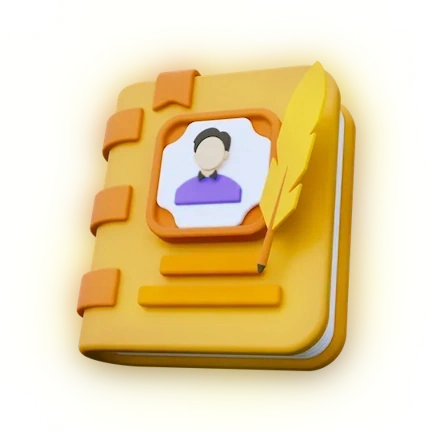 Read Stories
Read Stories Get News
Get News Find Help
Find Help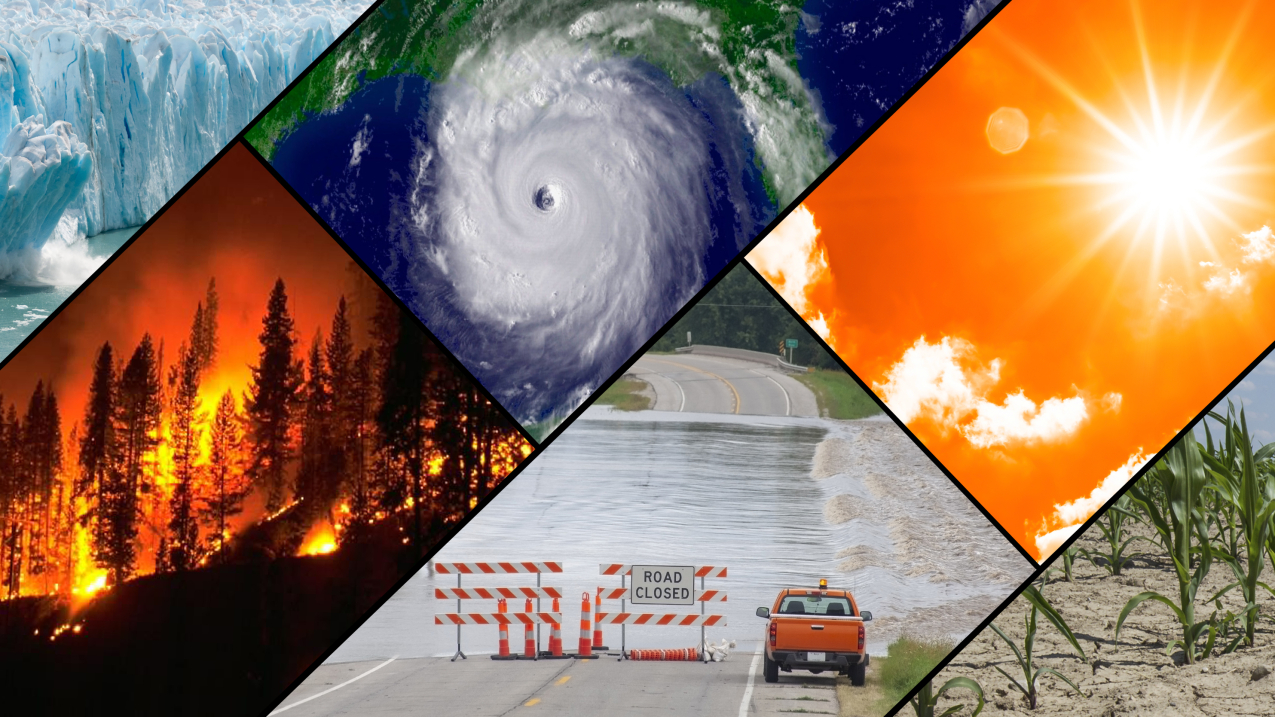
 Share
Share
 Share
Share
 Share
Share
 Share
Share

